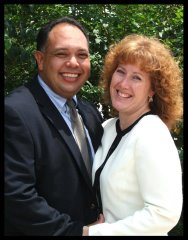Delacorte Press, 1999
ISBN 0-385-32306-9
Summary:
A ten-year-old orphan boy sets out on a quest to find his father after fleeing an abusive foster home. To make matters worse, he is black trying to survive in a society that considers him a second-class citizen during the middle of the Great Depression. Using a few clues left to him by his mother, Bud (whose mother always told him not to let people call him Buddy, a "dog's name") goes on the lam, trying to reach the man he believes to be his father without getting sent back to the orphanage.
Critical Analysis:
Christopher Paul Curtis uses a combination of research and family history to write Bud, Not Buddy. Although two of the characters are based on his grandfathers, Curtis admits he did not pay enough attention to "those boring old tales" told by family members, so much of his information about the Depression was accumulated through research.
He accurately portrays both the hardships of the Great Depression and the kindnesses extended by those who often did not have much to share. In Chapter 6, Bud faces the reality of going hungry when he is denied access to a breakfast bread line, but a hungry family pretends he belongs to them so he can eat despite the fact that they are risking their own place in line. Later in the book, homeless people in "Hooverville" offer Bud dinner and a place to sleep shortly before police raid and destroy the makeshift town. Throughout the book, Bud experiences both the worst and the best in people around him.
Even though Bud's plight seems grim at times, Curtis tells his story with a sense of humor. Early in the story, Bud explains that being six years old is tough. He uses losing teeth as an example. He says that you discover a loose tooth when you wake up one day, and when the tooth falls out, adults tell you it's "normal."
"You can't be too sure, though, 'cause it shakes you up a whole lot more than grown folks think it does when perfectly good parts of your body commence to loosening up and falling off of you.
Unless you're as stupid as a lamppost you've got to wonder what's coming off next, your arm? Your leg? Your neck?"
Of course, there is a sad counterpoint to his humor. Bud goes on to say, "Six is real tough. That's how old I was when I came to live here in the Home. That's how old I was when Momma died."
Bud eventually reaches the man he believes is his father, and clues Curtis has planted throughout the story begin to come together until Bud finds his true identity.
Review Excerpts:
"This is an Oliver Twist kind of foundling story, but it's told with affectionate comedy. . . . Told in the boy's naive, desperate voice, with lots of examples of his survival tactics, . . . this will make a great read-aloud. Curtis says in an afterword that some of the characters are based on real people, including his own grandfathers, so it's not surprising that the rich blend of tall tale, slapstick, sorrow, and sweetness has the wry, teasing warmth of family folklore."
Hazel Rochman, BookList, September 1 1999, v. 96 no. 1
"{This} book is a gem, of value to all ages, not just the young people to whom it is aimed. . . . In a time when it is all too easy to misread the signs of a child's yearning to belong, 'Bud, not Buddy' reminds us with great humor and grace what a difference connectedness makes."
Trudy C. Palmer, The Christian Science Monitor, September 23, 1999, v. 91 no. 209
Connections:
Pair Bud, Not Buddy with a variety of other books about children who grow up during the Depression or children who face racism.
Research the Big Band era and bandleaders.
Research early labor unions.
Have students draw and cut out items that would symbolize their lives to "pack" in paper suitcases.
Listen to a recording of all or part of the story and discuss how the dialog is written.

No comments:
Post a Comment